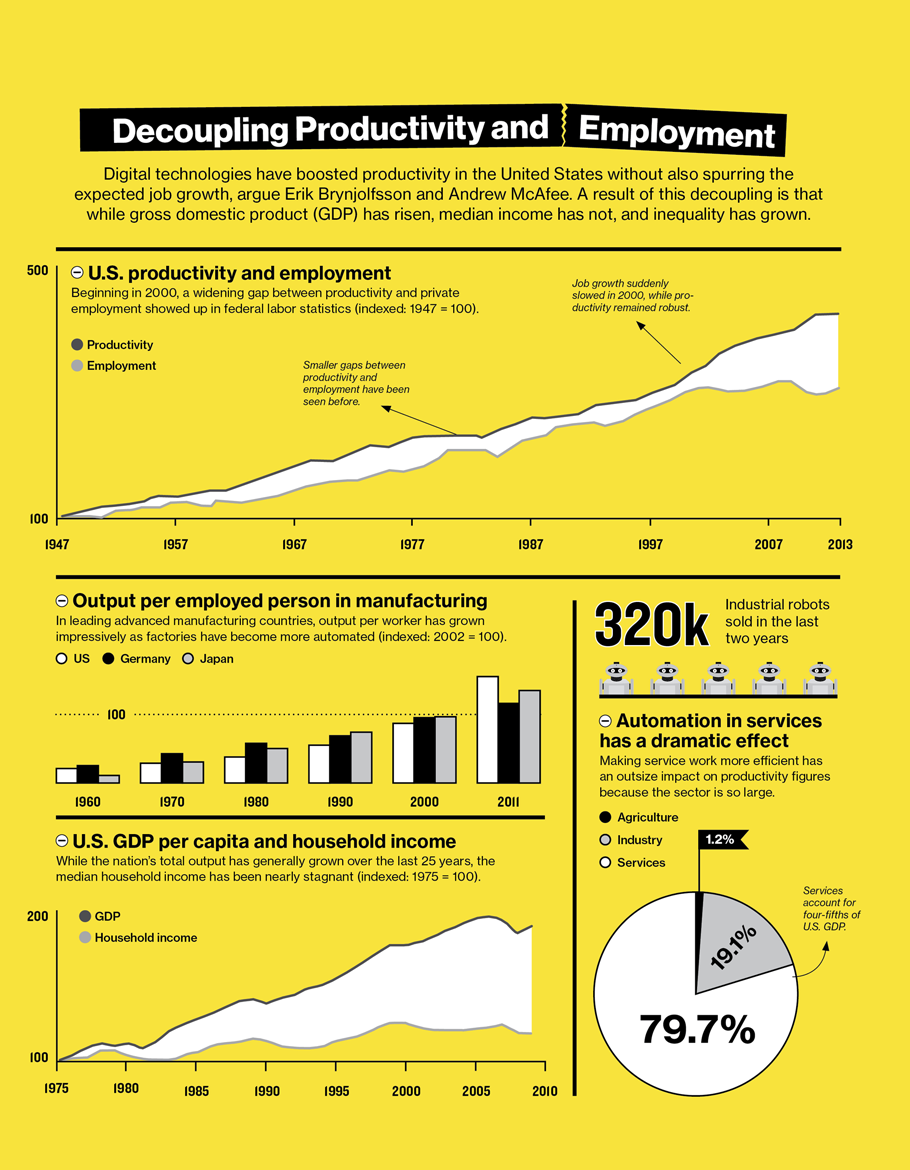I'll concede that "work as a rare commodity" doesn't apply to highly skilled professionals in vital / sought after fields. The definition of "sought after field" is going to change over time, yes. You mentioned automation. I'll add rationalization (in the sociological / economical sense) to that. What you end up with is not a simple shift away from traditional jobs towards new ones. You end up with a situation where productivity is decoupled from demand for workforce (and thus, wages). A quick search produced this graphic to illustrate my point:
And yet, as far as robotics go, we are only really getting started. Sure, there's manufacturing, but other fields which were traditionally in strong demand of human labor are beginning to see change, too:
http://www.forbes.com/sites/jsimms/2015/04/01/yoshiyuki-sankais-cyborgs-serve-japans-sick-and-elderly/ By now, the idea of "new jobs which we can't even imagine today" replacing those lost by automation, rationalization (inlcuding concentration of workloads on highly skilled individuals) has been pretty much proven a myth. Yeah, there are new and high-techy fields of work. They just happen to come not even close to replacing the jobs which were lost in creating these fields. How, in a system which still closely links financial wellfare to gainful employment, could we not regard work as an increasingly rare commodity? With all the implications for those in the "reserve force" and those who can be truthfully told "If you don't like the conditions, I have a hundred guys ready to replace you." This whole development could actually produce a very liberating situation. I blame (the protestant ethic and the spirit of) capitalism for making it a nightmare.